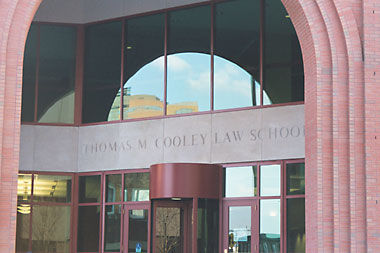Law Student Blogger Fights to Remain Anonymous
As I’ve discussed here before, there is a constitutional right to remain anonymous on the Internet. The concept harkens back to the days of “pamphleteers” — those who would distribute anonymous pamphlets, usually criticizing the government. The authors of these pamphlets needed to remain anonymous lest they be harassed by the government officials they were criticizing. Any requirement that pampleteers sign their work was deemed to be an unconstituional violation of the First Amendment.
Today’s pamphleteers use the Internet, and sometimes have a compelling need to remain anonymous. Even if their tomes are not directed at the government, they may feel the need to, say, report unsafe working conditions at their place of employment. We certainly would not want to require someone to disclose their identity under such a circumstance, nor should we permit the subpoena power to be used to determine such a person’s identity.
On the other hand, we cannot allow unfettered defamatory speech. So, to protect both interests, the courts have determined that a poster has the right to remain anonymous, unless and until the person or entity seeking that person’s identity makes a preliminary showing that the speech is defamatory.
This is a reasonable compromise. I have never had a court deny my request for the information when I am on the plaintiff’s side. The reason is simple. I don’t bring frivolous actions. If I’m suing for defamation, then it will always be the case that I can make a showing that the speech is defamatory. Conversely, other attorneys do not have such high standards. I have successfully quashed subpoenas and thereby blocked the disclosure of client information, by showing that the statements made by my anonymous clients are not defamatory.
Which leads me an article I saw today that involves all of these issues. It seems that a law student at Thomas M. Cooley Law School was not happy with that institution, and started a blog called Thomas M. Cooley Law School Scam, telling tales of wrongdoing. The school was not amused, and sued the anonymous author as a DOE defendant, and is now seeking the identity of that student. The student is fighting to remain anonymous. Read the article if you want to see how this all plays out.
In an interesting twist, the school did learn the identity of the student through some confusion by the Internet service provider over whether the subpoena was being challenged, and even put his name in some court records that could be accessed on-line. However, the attorneys representing the student convinced the court to unring the bell and remove his name from court documents. If the school cannot show the postings were defamatory, the case will have the interesting result of having to be dismissed because the identity of the DOE is unknown, even though in reality it is known. (Although, if the school can’t make that showing now, there is no reason to assume it would be successful at trial.)



Pingback: Student Debt? What Student Debt? « The Practice of Law
Pingback: Student Debt? What Student Debt? | Your Own Law Firm